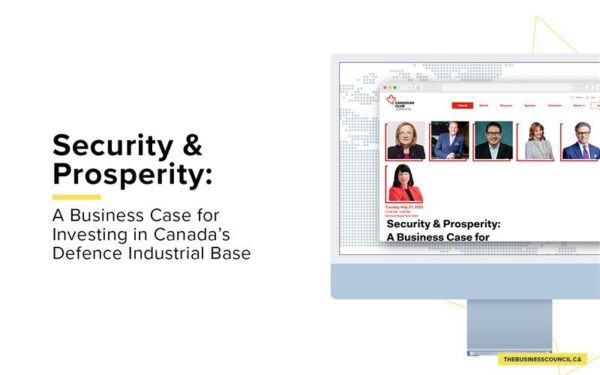Feds get skills training right in Budget 2019
As originally published in The Hill Times
You don’t need to be an Uber driver or drone operator to see how technology is impacting professional life.
New tools and techniques are changing what we do and how we do it. We’re already seeing how machine learning and artificial intelligence affect nearly all aspects of how we do our jobs, from the security of our email to how we share information and whether the goods we make arrive to customers on time.
It should come as no surprise that the changing nature of work has filtered down to students who now face greater challenges when entering the labour market. The ubiquity of technology means jobs are becoming more complex, and new grads are thrown right into the deep end. As a result, employers are frustrated and searching for workers with the right mix of technical and human skills in an increasingly tight labour market.
This is why leaders of Canada’s top businesses and post-secondary institutions were so pleased to see skills training become a key element of the federal budget released last month. When it comes to ensuring our young people have the right skills and experiences to succeed in today’s job market, the government of Canada has sent an important signal that it gets it.
Launched four years ago, the Business/Higher Education Roundtable (BHER) has brought together some of Canada’s largest companies and leading post-secondary institutions. In 2016, we set a goal for every post-secondary student in Canada to participate in some form of work-integrated learning, such as a co-op, paid internship, apprenticeship, or applied research project, before they finish school.
This year’s federal budget explicitly endorses that target, delivering big for students, business, and Canada’s post-secondary sector with a historic investment in work-integrated learning. The government has pledged nearly $800-million to help employers expand work-integrated learning placements and opportunities to support young Canadians from across the country in moving between school and work.
These commitments recognize that investing in work-integrated learning is a smart move that is a win-win. Students gain hands-on, relevant experience while they learn. Employers gain access to the skills and innovation mindset of young talent. Schools gain a better sense of the skills they need to support.
But beyond the innovation boost to companies and the skills gained by students, helping young people move from school to work has another transformative impact.
In a convocation address at the University of Waterloo in 2016, fresh out of the meeting where we set our 100 per cent target, Dave McKay, CEO of the Royal Bank of Canada, remarked: “Rightly or wrongly, one’s first big job often depends on who you know. Some students don’t have parents with contacts in business or government or even universities. Work placements build networks. It gets students in front of employers. It’s a social leveller. And it exposes students from all backgrounds to the way much of Canada operates.”
He should know—he began his career as an RBC co-op student in the 1980s.
Mr. McKay’s deeply personal commitment is reflected in how he’s championed work-integrated learning throughout the financial sector. Across the country, there are many other businesses, schools, and organizations that have done the hard work of building partnerships and programs in sectors as diverse as mining to advanced manufacturing. These are groups equally committed to this goal, and I’ve been fortunate to work alongside and learn from many of them over the past three years.
Our challenge has always been ensuring that 100 per cent of students, regardless of where in the country they study, have the opportunity to develop the skills they need for success.
I can say with confidence that the 2019 budget is a significant investment in both Canada’s economy and people. The money committed to work-integrated learning and student placements will help connect employers of all types with students eager to apply their new knowledge in the workforce. Building bridges between post-secondary institutions and our employers—including not-for-profits, small businesses, government agencies, and more—is a way of encouraging lifelong learning and leveraging Canada’s best strengths.
There is still much work to be done to ensure that the money promised turns into real, high-quality work experiences for every student. And there are bigger steps to take to help existing workers get the training they need to navigate their careers over time. Thankfully, the federal government has committed groups of Canadians from across the country eager to help.
Valerie Walker is the executive director of the Business/Higher Education Roundtable and is the co-chair of the Future Skills Council.











